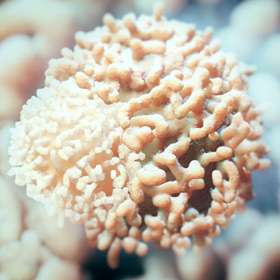Women Need to Know About This Unique Type of Breast Cancer

Just its ominous name is a clue to the fact that triple negative breast cancer isn't like others: It occurs in a higher percentage of younger and African- American women, is more aggressive, and requires different treatments. Early detection and diagnosis is important for outcomes.
Triple negative breast cancer cells don't have the three types of receptors that are commonly found on other breast cancer cells: estrogen receptors, progesterone receptors and HER-2 receptors. Because the cancer cells are "negative" for these receptors, they don't respond to the treatments used to treat more typical breast cancer, says Dr. Amie Jackson, a medical oncologist at the TriHealth Cancer & Blood Institute.
Who Gets It?
This cancer is uncommon, accounting for only 10-20 percent of breast cancer cases, but not rare. Almost 200,000 women are diagnosed with triple negative breast cancer worldwide annually. However, it does impact a different group than typical cancers. For instance:
- While most breast cancers are diagnosed in women over the age of 50, triple negative breast cancer is much more likely to strike younger women. It is twice as common in women under the age of 40, including those in their 20s and 30s.
- African Americans are at the highest risk for developing triple negative breast cancer. They are nearly 2.5 times more likely to develop triple negative breast cancer than Caucasians or Hispanics.
- Asian women appear to have the lowest risk.
Different in Many Ways
Triple negative breast cancer is different in several other ways.
Its cells tend to grow more quickly and might escape the breast sooner, which makes it more likely to be diagnosed at a later stage. It's also more likely to occur in families where there is a cancer-promoting gene. Only one in 20 women with breast cancer is expected to carry a cancer-promoting gene, but up to one in five women with triple negative breast cancer might. These cancer-promoting genes can increase the risk for breast cancers, especially triple negative breast cancers. They can also increase the chance of developing other types of cancer, as well.
"Because of this," Dr. Jackson says, "women who are diagnosed triple negative breast cancer should meet with a genetic counselor to determine whether testing for cancer-promoting genes is appropriate."
Treatments and What You Can Do
Because triple negative breast cancers lack receptors, it does not respond to the receptor-targeted treatments commonly used to fight other breast cancers. However, this cancer often responds well to chemotherapy. This is frequently used in combination with surgery when treating patients with this type of cancer.
Dr. Jackson says that much is still unknown about this vexing cancer, including why it behaves differently and strikes a different group of women. Although it accounts for a small fraction of breast cancer cases overall, its aggressive nature and difficulty treating make early detection important, as it is with all breast cancers.
The most important thing for women is to do the same for all breast cancers: do monthly breast exams, get regular mammograms, and talk to their doctor about anything that seems different. Because triple negative is most common before the age of 40, women with a family medical history of breast or ovary cancer should talk to their doctor about their risk of breast cancer and preventative measures - especially if family members were affected at a young age, or multiple members of the same family were affected.